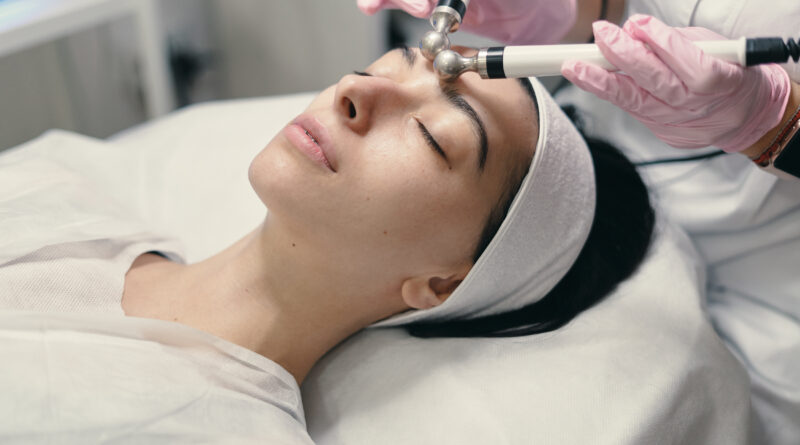Effective Melasma Treatment in Loughton: Achieve Clear and Radiant Skin
Melasma is a common skin condition that causes brown or grayish patches to appear on the face. Often triggered by hormonal changes, sun exposure, or pregnancy, melasma can be a frustrating condition to manage. Fortunately, with proper melasma treatment in Loughton, you can regain your confidence and restore your skin’s natural glow. In this article, we will explore the causes, symptoms, and effective treatments for melasma, offering you valuable insights on how to manage the condition.
What is Melasma?
Melasma is a type of hyperpigmentation that primarily affects the face, often appearing on the cheeks, forehead, chin, and upper lip. It is characterized by dark, irregularly shaped patches of skin that vary in size and color. Although it is not a harmful condition, melasma can affect a person’s appearance and self-esteem.
The condition is most common in women, especially during pregnancy (when it is often referred to as the “mask of pregnancy”) or when taking birth control. However, melasma can also affect men, particularly those who have a family history of the condition or spend a lot of time in the sun.
Causes of Melasma
Understanding the root causes of melasma is crucial for determining the best treatment options. Here are some of the primary triggers:
- Hormonal Changes: Pregnancy, birth control pills, and hormone replacement therapy (HRT) are common causes of melasma. These hormonal fluctuations can stimulate the production of excess melanin in the skin, leading to pigmentation issues.
- Sun Exposure: Exposure to UV rays is one of the most significant contributors to melasma. Sunlight stimulates the production of melanin, and for individuals predisposed to melasma, it can worsen the condition.
- Genetic Factors: Family history plays a crucial role in the development of melasma. If your parents or grandparents had melasma, you may be more likely to develop it as well.
- Skin Irritation: Sometimes, skin irritation or certain skincare products can contribute to melasma. Harsh products or treatments that cause inflammation may trigger pigmentation changes.
- Medications: Certain medications, including oral contraceptives, can increase the risk of melasma. Consult your healthcare provider if you suspect your medication is contributing to your skin condition.
Symptoms of Melasma
The primary symptom of melasma is the appearance of dark patches or spots on the skin. These patches are typically symmetrical and may appear on the cheeks, nose, chin, and forehead. The discoloration can vary from light brown to dark brown, and in some cases, it may have a bluish or grayish tint.
Melasma Treatment Loughton is most noticeable in individuals with lighter skin tones, but it can affect people with all skin types. The condition is typically painless, though it can cause cosmetic concerns and emotional distress due to its visible nature.
How Melasma Treatment in Loughton Can Help
Managing melasma requires a comprehensive treatment plan tailored to each individual’s needs. Several treatments are available to reduce or eliminate the dark patches caused by melasma. If you are looking for melasma treatment in Loughton, here are the most effective options to consider:
1. Topical Treatments
Topical treatments are often the first line of defense against melasma. These treatments contain ingredients that help lighten the skin and reduce pigmentation. Some common ingredients found in melasma treatment products include:
- Hydroquinone: This is one of the most commonly used skin-lightening agents. It works by inhibiting melanin production, helping to fade dark spots.
- Retinoids: Retinoids promote skin turnover, reducing the appearance of melasma by speeding up the shedding of darkened skin cells.
- Vitamin C: Known for its antioxidant properties, Vitamin C helps brighten the skin and reduce pigmentation.
- Azelaic Acid: Azelaic acid helps to lighten melasma by inhibiting melanin production and reducing skin inflammation.
Topical treatments often take time to show results, so patience and consistency are key to achieving optimal outcomes.
2. Chemical Peels
Chemical peels involve applying a chemical solution to the skin to exfoliate the top layers and reveal fresher, more even skin beneath. They are particularly effective for melasma treatment, as they remove the outer layers of pigmented skin, allowing for the growth of new, clearer skin.
There are different types of chemical peels, including superficial peels and deeper peels. A superficial peel is ideal for mild melasma, while a deeper peel may be recommended for more stubborn pigmentation.
Chemical peels should be performed by a trained professional to ensure safety and effectiveness. After the procedure, it is important to follow a strict skincare routine to avoid sun exposure and maintain the results.
3. Laser Treatments
Laser treatments have gained popularity for melasma treatment in Loughton due to their precision and effectiveness. Lasers work by targeting the pigment in the skin and breaking it down, allowing the body to naturally eliminate the excess melanin.
Common lasers used for melasma treatment include:
- Fractional CO2 Laser: This laser works by creating micro-injuries in the skin, stimulating collagen production and reducing pigmentation.
- Intense Pulsed Light (IPL): IPL uses light energy to target melanin and break it down, effectively reducing dark spots.
Laser treatments offer faster results than topical treatments and can be an excellent option for patients with more severe melasma. However, multiple sessions may be required for the best outcome.
4. Microneedling
Microneedling is a non-invasive treatment that uses tiny needles to create controlled injuries in the skin. These micro-injuries stimulate collagen production and promote skin healing. Microneedling is effective for melasma as it helps to break down the pigment while improving skin texture.
Why Choose Melasma Treatment in Loughton?
Loughton offers a range of skilled dermatologists and skin care professionals who specialize in treating melasma. The treatment options available in Loughton are tailored to your individual skin type and concerns, ensuring the best possible results.
The clinics in Loughton use the latest technology and employ advanced techniques to target melasma effectively. Whether you are looking for non-invasive treatments or more intensive procedures, there is a solution for you.
Conclusion
With the right treatment plan, you can reduce pigmentation and restore your skin’s natural beauty. From topical treatments to advanced procedures like chemical peels and laser therapy, melasma treatment in Loughton offers a range of options to help you achieve clear and radiant skin.
Also Read this: – https://thehealthnews24.com/2024/12/26/expert-ophthalmologist-eye-care/



